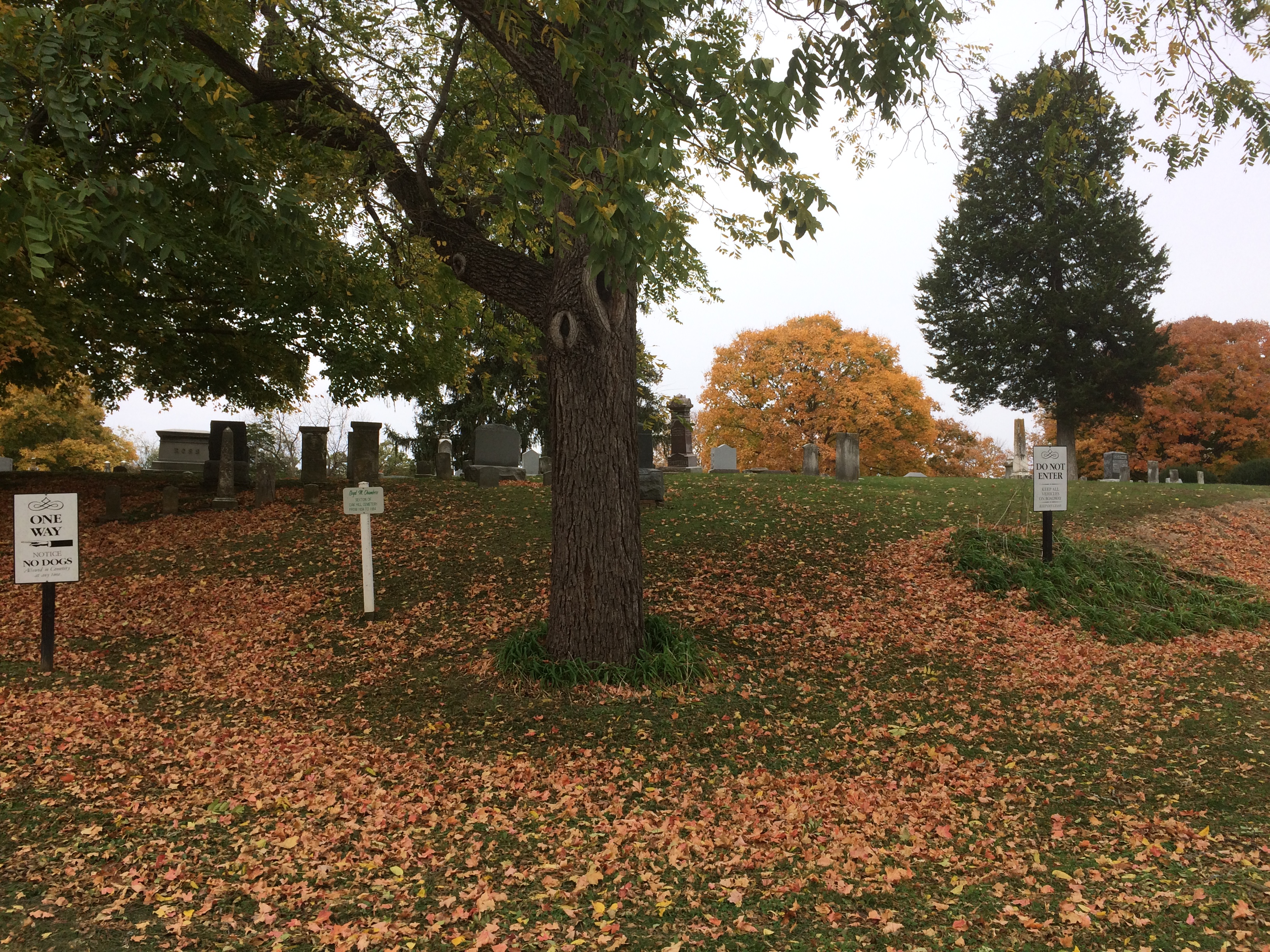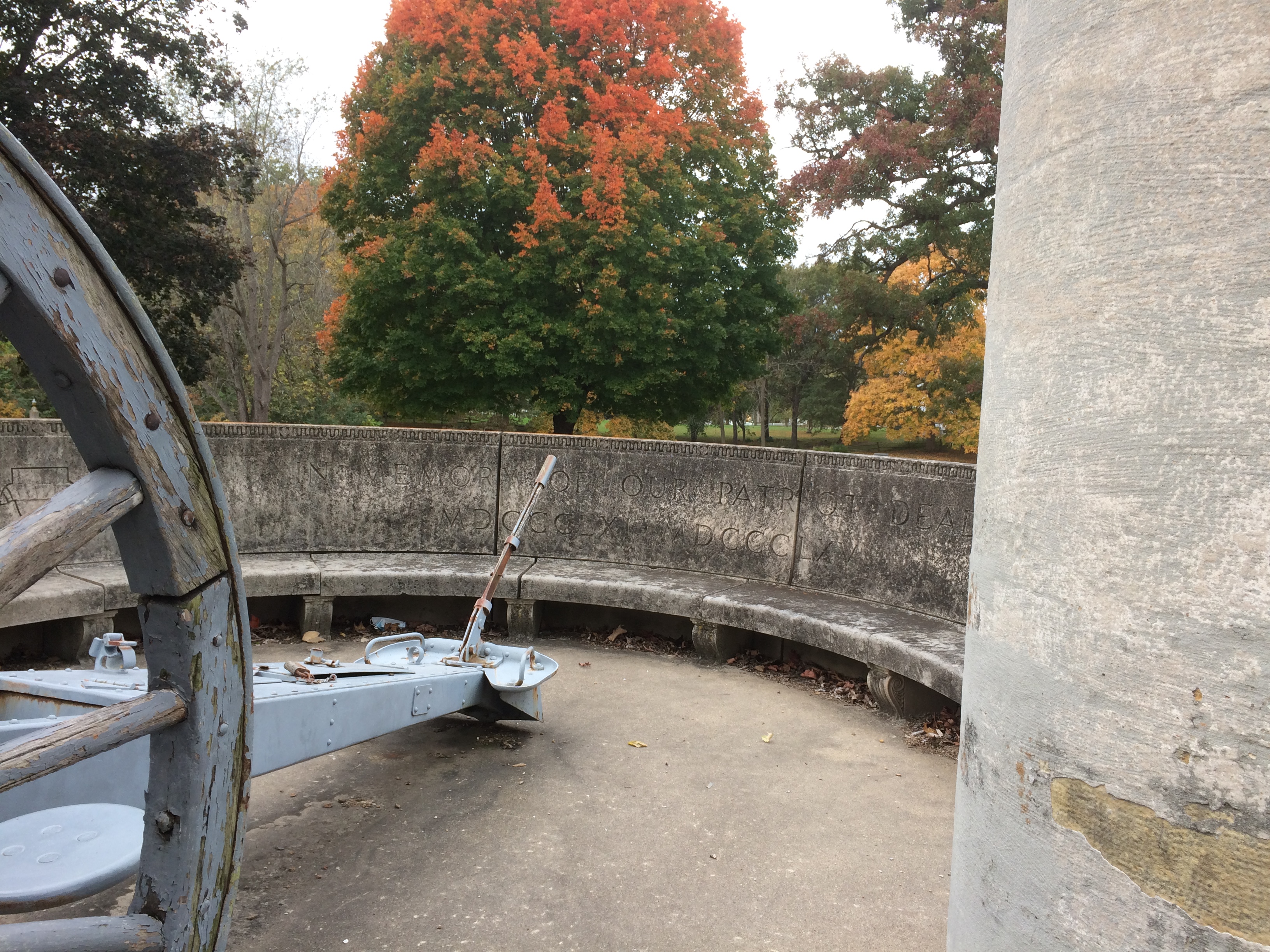Lewistown, Illinois, isn’t very large. Only 2,100 or so people live there, as opposed to Oak Hill Cemetery in Lewistown, which has a population of more than 5,000. I arrived for a look on the morning of October 17.
I hadn’t expected such a good-looking cemetery. The fall colors helped, but only added to the overall aesthetic of woody terrain, sometimes hilly, peppered with upright stones and funerary art.
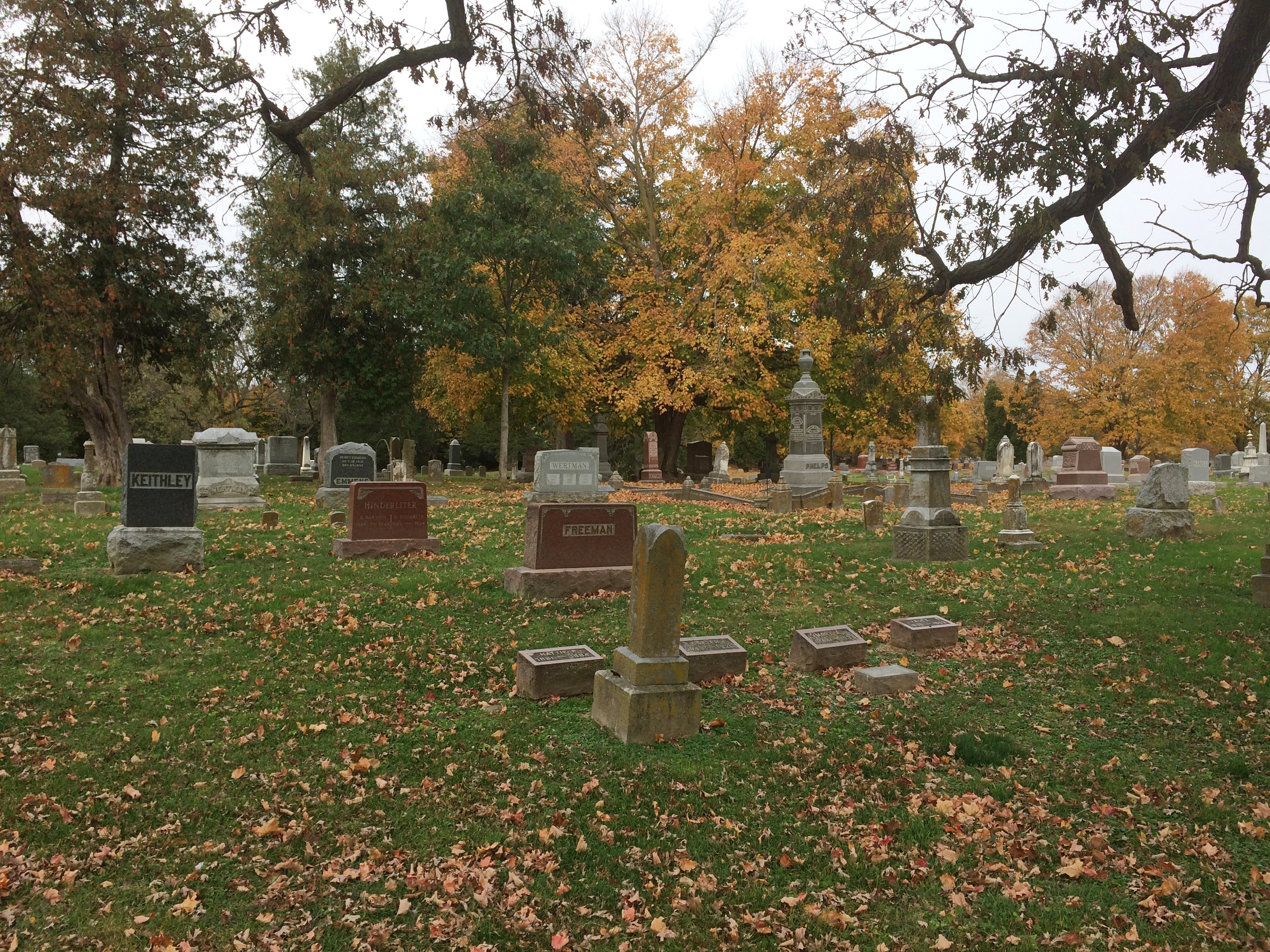
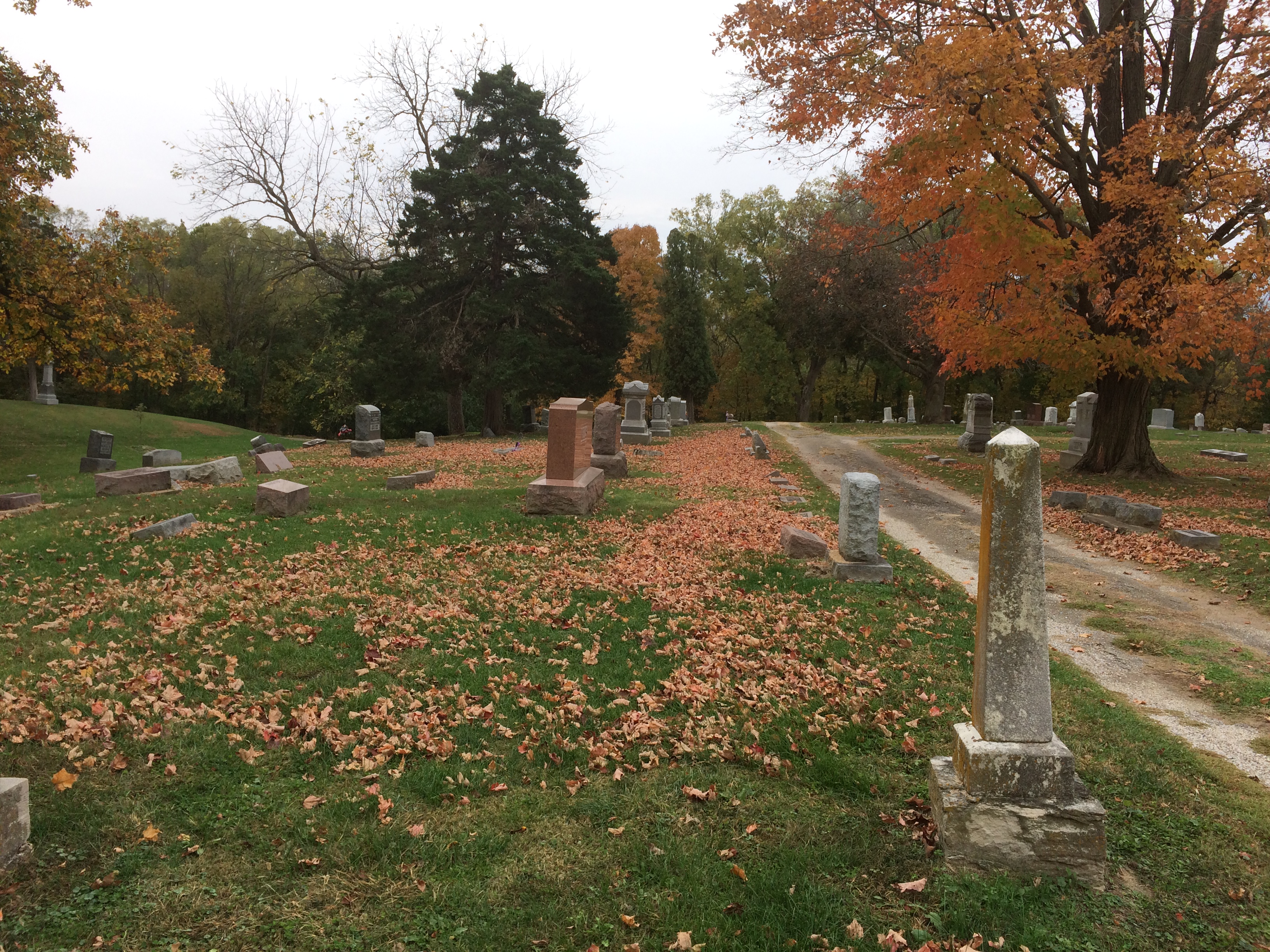
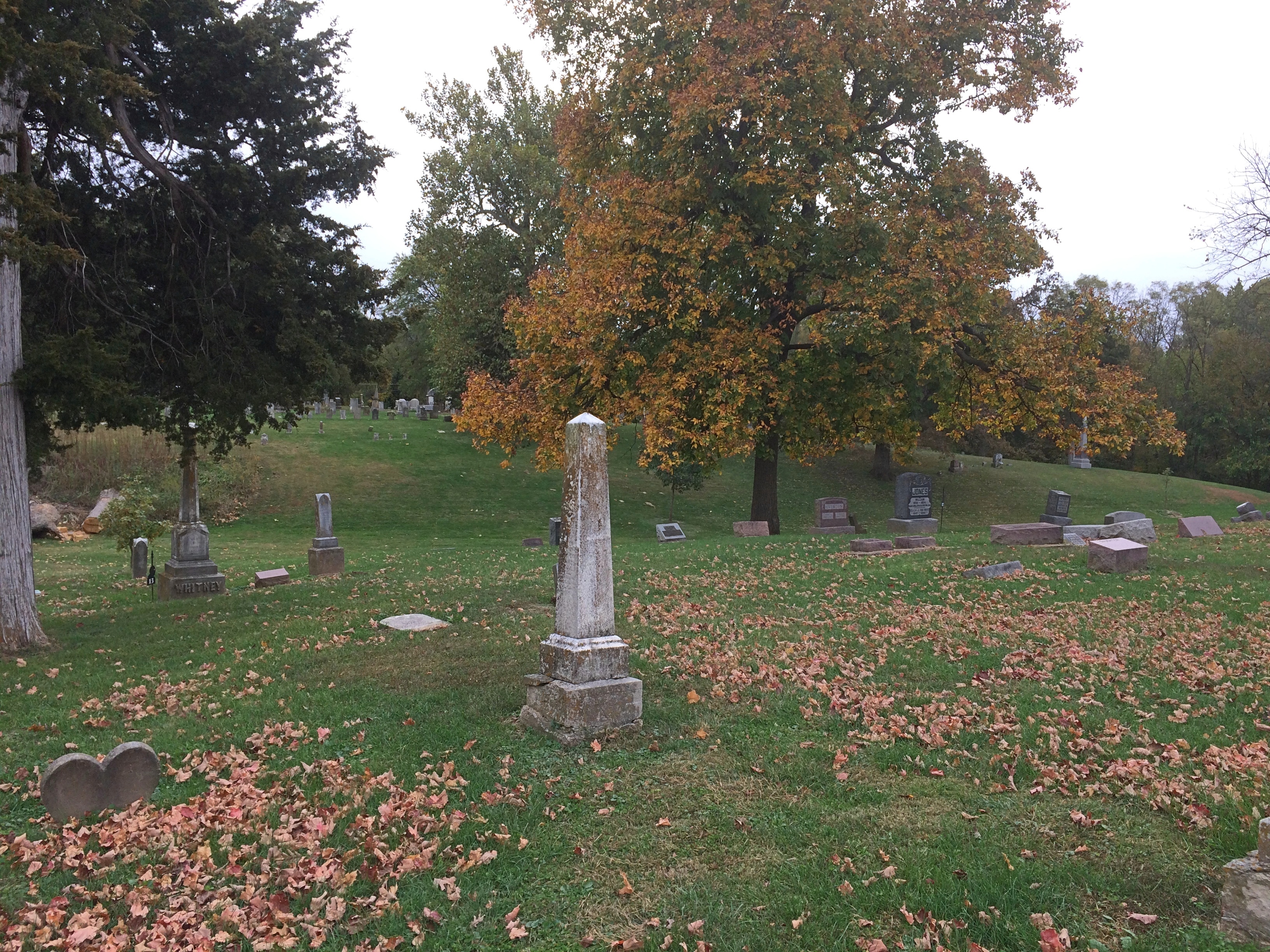
As you’d expect, there’s a Civil War memorial.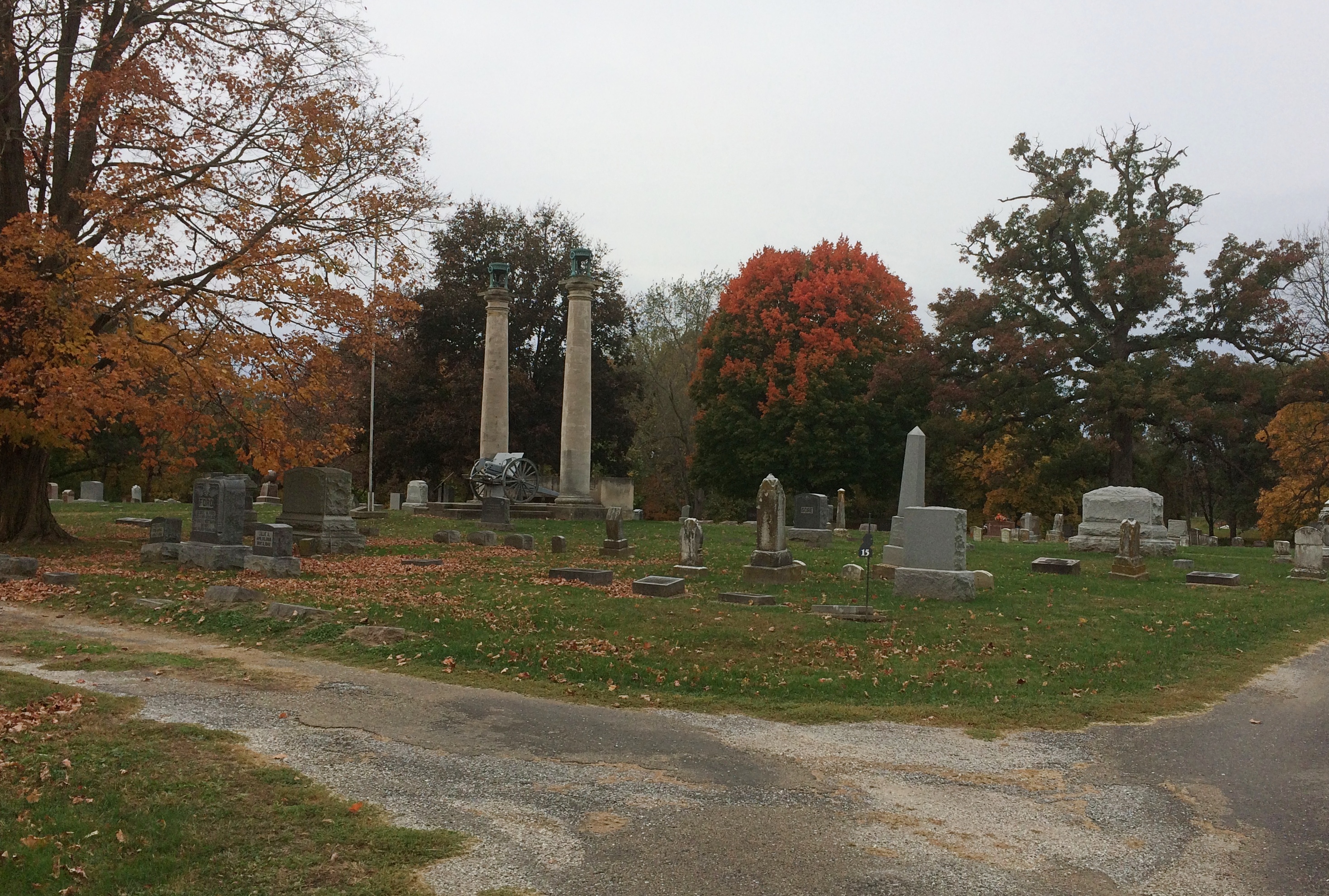
It’s hard to see in this pic, but this is the entirety of the inscription, written on the stone bench:
IN MEMORY OF OUR PATRIOT DEAD
MDCCCLXI–MDCCCLXV
I didn’t know it until later, but the columns at the memorial were salvaged from the previous Fulton County courthouse, which burned down in the 1890s. When Lincoln came to town in the ’50s to speak, he stood on the courthouse steps between the columns, and so the town wanted to work them into its Civil War memorial.
In as much as Oak Hill Cemetery is known to the world, it isn’t for its beauty or a war memorial. Rather, Edgar Lee Masters took inspiration from it for Spoon River Anthology. Sometimes, I’ve read, very specific inspiration, since he knew many of the townspeople — such as the weak of will, the strong of arm, the clown, the boozer and the fighter, to borrow language from the opening of the book.
“In the groundbreaking work, Masters, a onetime law partner of Clarence Darrow, gives voice to more than two hundred deceased citizens of Spoon River who are laid to rest in Oak Hill Cemetery, known to the locals as The Hill,” wrote Laura Wolff Scanlan in Humanities magazine in 2015.
“Freed by the shackles of life, the un-living who ‘sleep beneath these weeds’ confess their deepest secrets, disappointments, frustrations, joys, and warnings to the living in the form of brutally honest free verse poems.
“In some cases, Masters barely changed their names. Henry Phipps was really banker Henry Phelps. Harry Wilmans was Henry Wilmans…
“Even though most names were fictitious, everyone in town knew exactly who he was talking about. Because of this, the book was immediately banned from schools and libraries in the area, including the Lewistown library.”
When Masters died in 1950, he wasn’t buried in Oak Hill, but rather in Petersburg, Illinois, which is close to Springfield.
The Lewistown library started stocking the book in 1974. After the death of everyone mentioned in it, and most of their immediate families, in other words. In our time, Lewistown claims the work as its own, since what else is the town known for, or could be known for? For the centennial of the book in 2015, the town held Oak Hill Cemetery tours, exhibitions and theatrical performances, according to Humanities.
For avid Spoon River enthusiasts, and there must still be a few, the graves of the real people associated with fictional counterparts are marked with numbers.
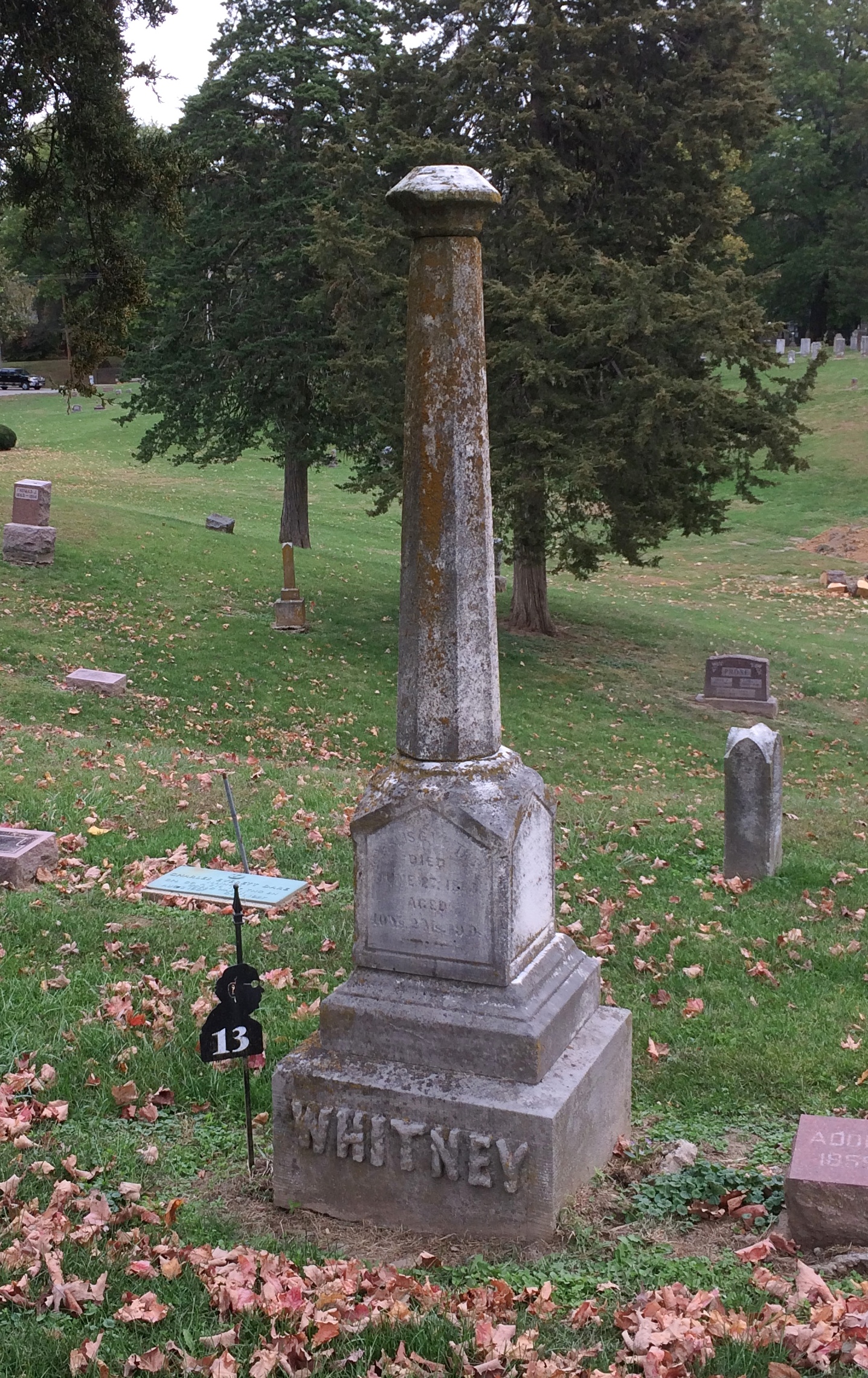
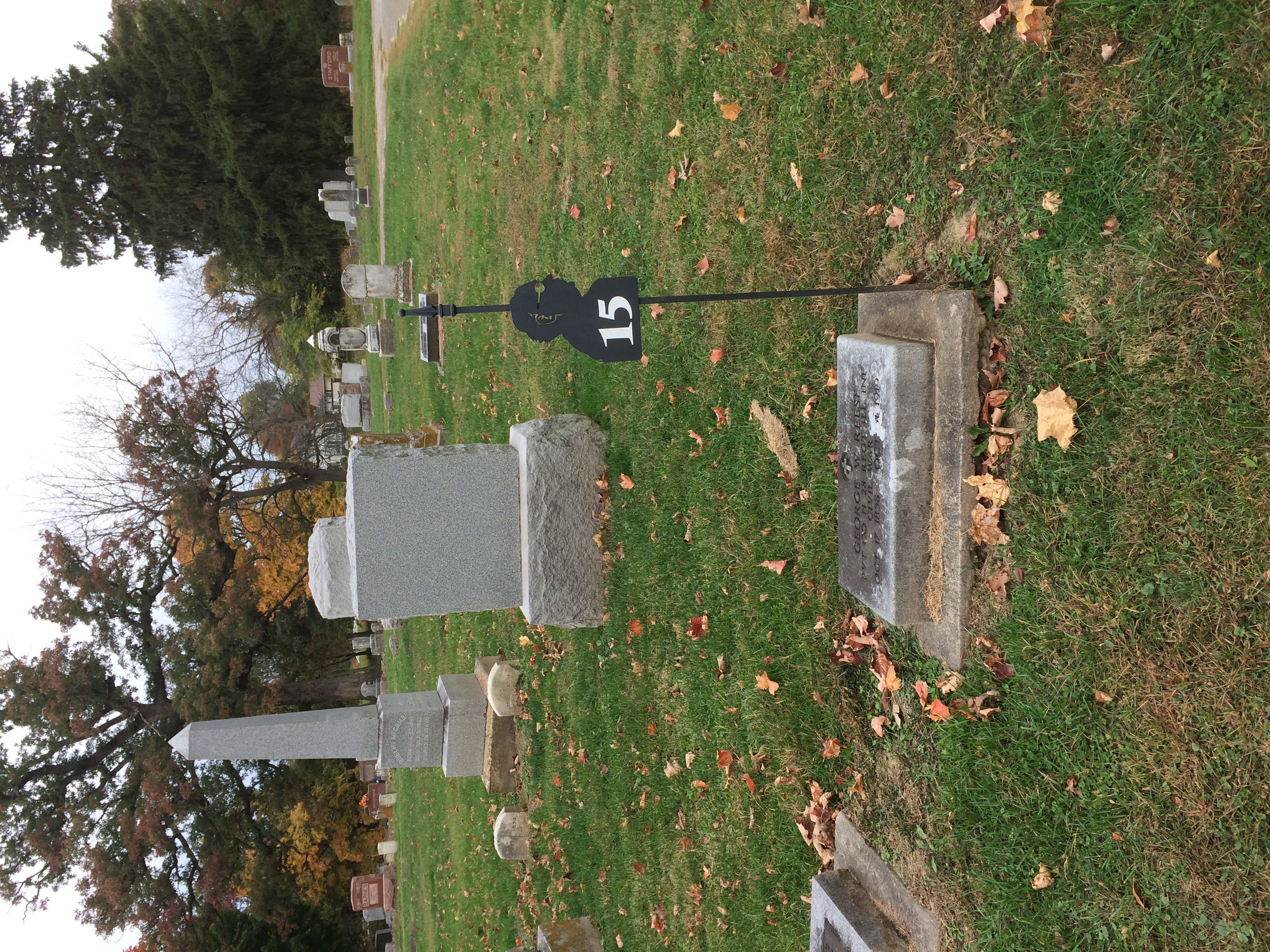
There’s a guide available that will tell you who’s who in the cemetery, according to their Edgar Lee Masters number. I am not enough of an enthusiast to look any of them up.
Still, I respect it as a successful work of literature about the residents of a cemetery. Interesting conceit. Sometimes I imagine that if the dead at the cemeteries could talk freely, I might hear some salacious bits. On the other hand, many of them might not have very much interesting to confess.
We had a copy of Spoon River in our library when I was growing up, and I read some of the poems then and a few later. The other day I happened across a radio version from 1957, which is worth a listen. William Conrad is always worth a listen anyway.
